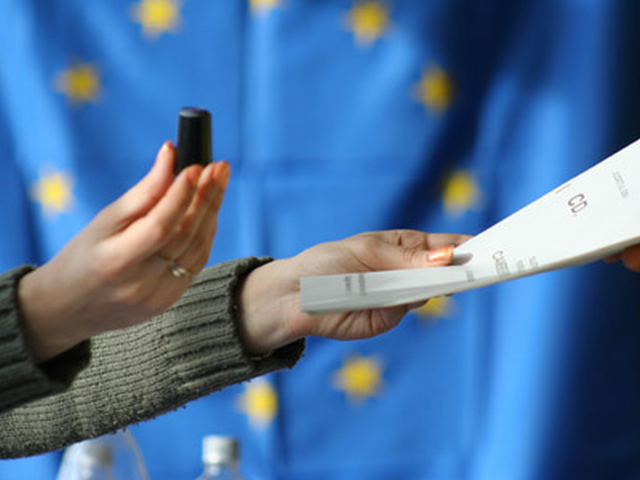Romania’s political challenges in 2014
The main challenges facing Romania in 2014, at home and abroad.

Corina Cristea, 10.01.2014, 13:20
2014 is an election year in Romania. In May, Romanians will go to the polls to elect their 32 representatives in the European Parliament and towards the end of the year they will choose a new head of state. Known to show little interest in elections in previous years, Romanians are unlikely to change their attitude in 2014.
A recent poll regarding this year’s Euro-parliamentary elections shows that almost 90% of Romanians don’t even know the date when they should go to the polls, while one third of them do not know the name of any Romanian MEP. Moreover, 78% of Romanians do not know the name of the European Commission president. As regards the activity of Romania’s representatives in the European Parliament, only 7% of the respondents are satisfied with their performance while a quarter are not The main reason invoked by almost half of those unhappy with their MEPs is that the latter have done nothing to protect Romanians’ rights.
Although it is estimated that the turnout at the European Parliament elections will be low, analysts believe these elections will still show how political parties will be able to mobilise themselves for the presidential elections later this year. In an interview to Radio Romania, professor Andrei Taranu said that most European citizens show little interest in European politics and that Romania is probably no exception to the rule. In his opinion, while the local parties will start their election campaigns from an ideological basis, they will use the same models they employ in the local elections, namely scandals and personal attacks. Professor Andrei Taranu explains:
“Not only in Romania, but almost everywhere else on the continent, European issues are of little significance to the voters. This is not something that the wide public is interested in, although there are many decisions made by the European Commission and the European Parliament that affect our lives in a very direct way. The national parties do not know how to convince Romanian citizens to become more interested in European issues. They usually bring to their attention domestic issues, most of them based on feelings of hatred, victimisation and an attempt to paint a negative picture of the enemy, without coming up with any important solutions.”
Three people have so far registered for the presidential race to be held in late 2014: Crin Antonescu, who is supported by the Social-Liberal Union, Catalin Predoiu, a member of the Liberal Democratic Party, and Mihai Razvan Ungureanu, from the Civic Force. Andrei Taranu also does not exclude the possibility of an independent candidate. Citizens are interested in the presidential elections, so the turnout will be higher than in the European Parliament elections, Andrei Taranu believes.
As regards foreign affairs, Romania is now waiting for the publication this very month of the report on the Cooperation and Verification Mechanism. On December 10th 2013 the Romanian Chamber of Deputies endorsed several amendments to the Criminal Code, one of which stipulates that the president and MPs no longer have the status of civil servants. Implicitly, they will no longer be investigated for and charged with corruption-related acts, such as abuse of office, bribe taking or influence peddling.
Shortly after the adoption of these changes, the head of state said they may have negative consequences when it comes to Romania’s evaluation under the Cooperation and Verification Mechanism report. Traian Basescu:
“Amending the Criminal Code to favour politicians is something that nobody will forgive us for, and I’m sure the report will criticise Romania for lacking the political will to fight against corruption”.
After reactions of disapproval coming from different circles, including the foreign embassies in Bucharest, a new discussion about he elimination of the verification mechanism is seen as not very opportune.
Initially planned to take place in March 2011, Romania’s joining the Schengen agreement is even today a far away goal. At the Justice and Home Affairs Council held in Brussels in December, Romania, just like Bulgaria, stressed the fact that it had met all the criteria set by the Schengen acquis, a fact that was in fact acknowledged by all Member Countries. Bucharest and Sofia presented a joint political declaration expressing their disappointment at the delay of their Schengen entry and stating that there are no legal grounds for another postponement.
2014 is also the year when Romanian authorities are expecting a consolidation of the timid economic growth seen in 2013. The 2014 budget was based on a 2.2% growth rate, a 2.4% inflation rate and an exchange rate of 4.45 lei for one euro.






























